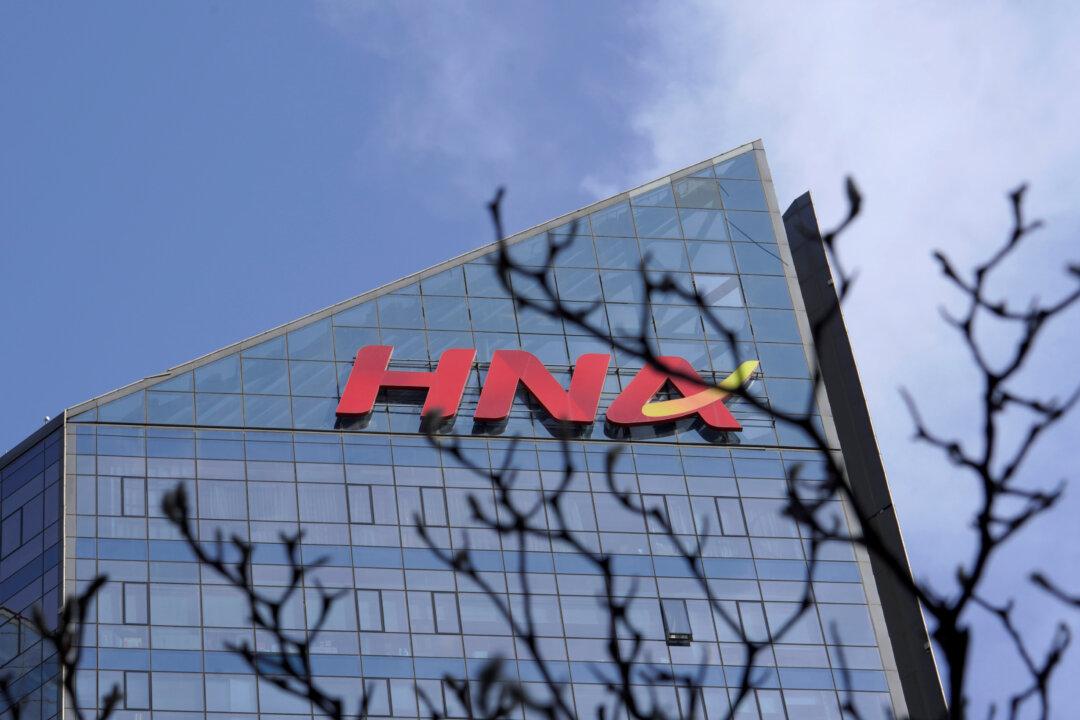HONG KONG—Chinese conglomerate HNA Group has turned to state-owned China Cinda Asset Management Co among the country’s largest bad debt managers, for advice on asset disposals, people with knowledge of the matter told Reuters.
HNA Group’s vice president, Dennis Chen, the nephew of its chairman Chen Feng, met with Cinda President Chen Xiaozhou on Nov. 20 to discuss cooperation, according to the people, who declined to be named as the information is confidential.





